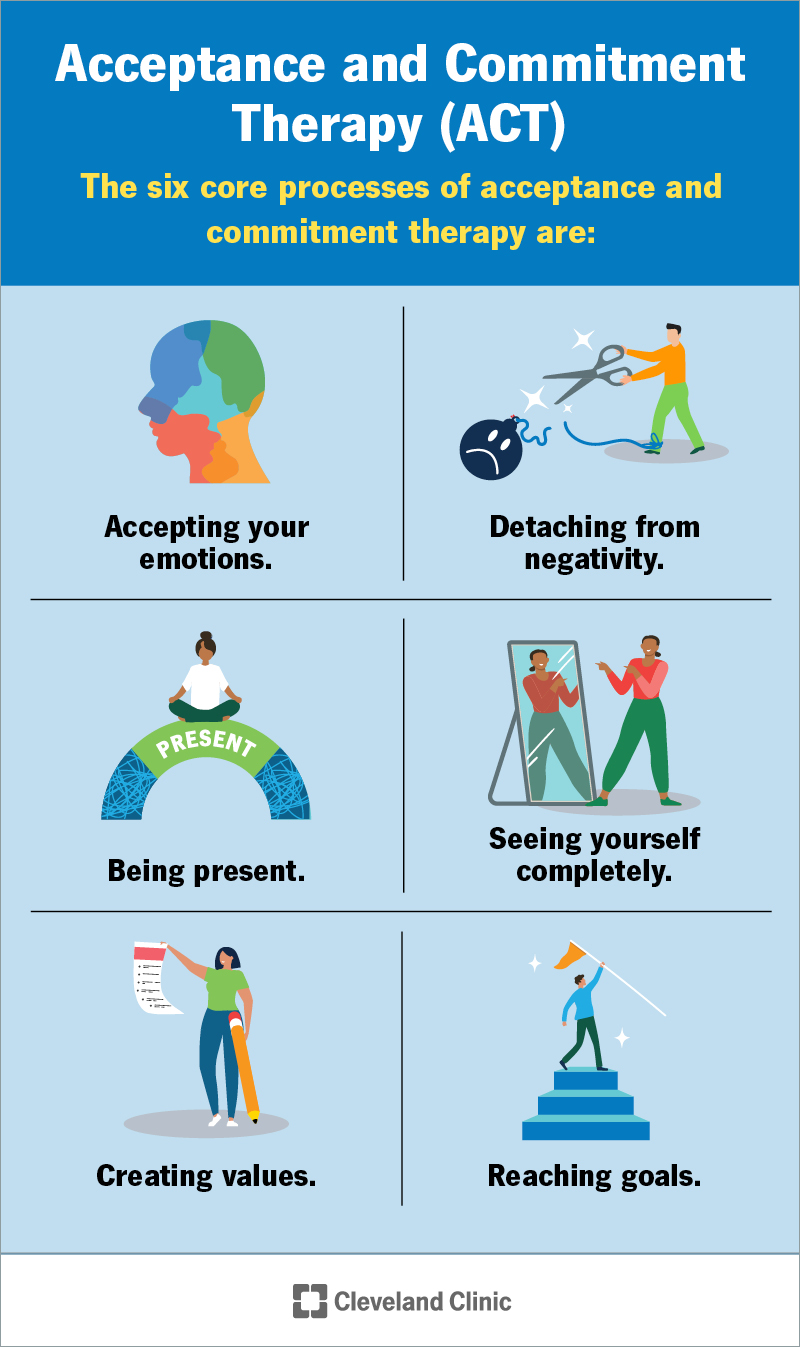Speak with a licensed therapist for anxiety and regain peace of mind
Exploring Different Strategies in Counselling for Anxiousness Disorder for Enduring Modification
When tackling anxiety disorders, it's necessary to discover a variety of counseling approaches. Each method offers unique understandings and tools to aid you handle your symptoms properly. You might discover that combining strategies can yield the most effective results. However, understanding the nuances of these strategies is crucial to fostering long-term change. What if the best mix could launch a new level of emotional health for you?
Understanding Stress And Anxiety Conditions: A Brief Summary
Anxiousness problems, which affect millions of people worldwide, can considerably influence daily life. You could experience frustrating sensations of fear or stress that seem uncontrollable. These sensations can cause physical symptoms like a racing heart, sweating, and even wooziness. Usual kinds of anxiety disorders include generalised anxiousness condition, panic problem, and social anxiety disorder. Each has distinct indications, yet they all share a tendency to interrupt your routine and relationships.Understanding the source of your anxiousness is important. It might stem from genetics, brain chemistry, or life experiences. Acknowledging your triggers can assist you manage your responses much better. It is necessary to keep in mind that you're not alone in this struggle. Lots of people encounter comparable difficulties, and seeking aid is a solid step toward sensation better. By finding out about anxiety problems, you're currently on the course to understanding and managing your condition better.
Cognitive-Behavioral Therapy: Challenging Adverse Thought Patterns

Determining Negative Thought Triggers
Acknowledging the details triggers behind your adverse ideas can be important in managing stress and anxiety when you experience minutes of distress. Begin by taking notice of circumstances that prompt feelings of fear or fear. Is it a jampacked area, an upcoming target date, or a conversation with certain people? Write down these circumstances in a journal. This will help you recognize patterns in your thinking. Notification physical sensations that accompany your unfavorable ideas, like an auto racing heart or tightness in your upper body. By pinpointing these triggers, you obtain understanding right into what's fueling your anxiety. Recognizing these connections is the primary step in challenging those thoughts and ultimately restoring control over your psychological reactions.

Replacing Ideas With Positives
Challenging negative idea patterns is a vital action in transforming your frame of mind and reducing anxiety. You may frequently find yourself trapped in cycles of self-doubt or disastrous thinking. Rather than letting these ideas determine your sensations, method replacing them with reasonable alternatives or positive affirmations. When you believe, "I can't handle this," change it to, "I can take care of challenges one action at a time." This basic modification can significantly affect your psychological state. Regularly identifying and countering these adverse ideas helps produce a much healthier interior dialogue. Keep in mind, it requires time and effort, but consistently exercising this strategy can result in long lasting adjustment, equipping you to deal with anxiety with restored self-confidence and strength
Structure Coping Strategies With Each Other
Changing negative thoughts is just the start of taking care of stress and anxiety efficiently. To create lasting modification, you need to construct coping techniques that empower you. Cognitive-Behavioral Therapy (CBT) helps you identify and challenge those purposeless thought patterns. With each other, you and your therapist can discover exactly how these ideas influence your feelings and behaviors.Start by establishing functional methods, like journaling or mindfulness exercises, that allow you to face stress and anxiety head-on. When you encounter your worries progressively, you'll learn to respond in different ways.

Mindfulness and Acceptance-Based Approaches: Cultivating Present-Moment Awareness
As you navigate the complexities of anxiousness, integrating mindfulness and acceptance-based approaches can significantly improve your capability to cultivate present-moment recognition. By concentrating on the here and currently, you'll discover that you can observe your ideas and feelings without judgment. This practice aids you acknowledge your stress and anxiety without feeling overwhelmed by it.Engaging in mindfulness exercises, such as deep breathing, body scans, or directed reflections, allows you to ground yourself in your existing experience. Acceptance-based techniques urge you to embrace your emotions as opposed to fight against them. They lose their power over you.Incorporating these techniques into your daily routine can transform just how you react to stress and anxiety when you approve your feelings. You'll establish resilience and learn to navigate difficult circumstances with better ease. Ultimately, cultivating present-moment awareness lays the structure for enduring modification, equipping you to lead a much more meeting life.
Direct Exposure Therapy: Challenging Concerns Progressively
Direct exposure treatment aids you face your concerns in a progressive way, making it much less overwhelming. You'll discover strategies to deal with anxiety-provoking scenarios action by action, while also developing coping strategies to manage your responses. This strategy empowers you to take control and minimize anxiety in time.
Progressive Direct Exposure Strategies
When encountering stress and anxiety, slowly confronting your worries can be a powerful way to gain back control. This strategy, referred to as gradual exposure, includes gradually subjecting yourself to the situations or objects that cause your stress and anxiety. Start with much less challenging circumstances and gradually work your way up to even more challenging ones. For circumstances, if you hesitate of public talking, you could start by speaking in front of a mirror, after that advance to sharing ideas with a pal, and ultimately address a small group. Each step assists desensitize you to the worry, building your self-confidence over time. Remember, it's necessary to speed on your own and commemorate little triumphes as you move through this process, enhancing your capability to handle stress and anxiety successfully.
Structure Coping Methods
Building effective coping methods is essential for taking care of anxiety, especially as you challenge your anxieties slowly. One powerful method is direct exposure therapy, where you start by encountering your anxieties in a controlled way. Start with less daunting scenarios and slowly work your way approximately more tough circumstances. This steady exposure assists desensitize you to stress and anxiety activates, making them much less overwhelming.Incorporate relaxation methods, such as deep breathing or mindfulness, to calm your mind during direct exposure. Track your progression, commemorating tiny success along the road to enhance your confidence. Keep in mind, it's fine to take your time; the goal isn't perfection but constant enhancement. By building these methods, you'll encourage on your own to browse stress and anxiety and embrace life much more fully.
Psychodynamic Therapy: Uncovering Origin Reasons of Anxiety
Psychodynamic therapy checks out the subconscious mind, disclosing the origin of your anxiety - Counseling services for anxiety. By examining your thoughts, feelings, and past experiences, this method assists you uncover underlying conflicts and unsolved concerns that might add to your current anxiety. You'll deal with a therapist to explore childhood experiences, relationships, and psychological patterns that shape your responses today.As you gain understanding into these much deeper layers of your mind, you'll begin to identify exactly how past events influence your existing behavior. This understanding can result in catharsis, enabling you to refine emotions you may have suppressed.Through the therapeutic connection, you can additionally recognize defense reaction that might have developed over time, supplying a more clear path to change. Eventually, psychodynamic treatment furnishes you with the devices to resolve your anxiety at its core, promoting long-term makeover in your emotional health
Integrative and All Natural Methods: Integrating Methods for Greater Effectiveness
Incorporating numerous therapeutic strategies can boost your journey toward handling stress and anxiety better. By incorporating aspects from cognitive-behavioral therapy, mindfulness practices, and all natural approaches, you can develop a customized technique that resolves your unique needs. As an example, you may utilize cognitive-behavioral methods to test adverse idea patterns while incorporating mindfulness workouts to ground yourself in today moment.Additionally, exploring all natural methods such as yoga exercise or reflection can promote relaxation and lower stress and anxiety symptoms. This mix allows you to establish greater self-awareness and resilience.Experimenting with these diverse approaches can help you discover what reverberates most with you. Keep in mind, it's concerning discovering a synergy that works, rather than staying with a solitary strategy. This integrative technique not only provides instant relief but likewise cultivates long-lasting skills for managing anxiety, encouraging you to redeem control over your life.
The Function of Assistance Systems: Building Strength Through Connection
While it could seem that taking care of anxiousness is a solitary journey, having a strong support system can play an essential role in your strength. Surrounding on your own with understanding close friends, household, or support system produces a secure area where you can honestly share your feelings and experiences. You remind on your own that you're not alone in this struggle.These relationships offer motivation and can supply sensible coping approaches that have actually worked for others when you connect with others. It's additionally a possibility to obtain point of view; good friends can help you see scenarios in different ways, lowering sensations of isolation.Moreover, psychological assistance promotes a sense of belonging, which can greatly minimize stress and anxiety signs and symptoms. By leaning on your support group, you can develop strength and take on obstacles better. Remember, reaching out for assistance suggests strength, and it can make all the difference in your journey towards taking care of anxiety.
Regularly Asked Inquiries
What Are the Common Signs And Symptoms of Anxiousness Disorders?
You might experience uneasyness, fatigue, trouble concentrating, irritability, more info muscular tissue tension, and rest disturbances. Physical symptoms can include quick heart beat, sweating, and shivering. Recognizing these signs early can help you seek suitable support and treatment.

The Length Of Time Does Treatment Normally Last for Anxiousness Disorders?
Therapy for stress and anxiety disorders commonly lasts anywhere from a few weeks to numerous months. It actually relies on your private needs, progression, and the techniques your specialist uses to help you handle your anxiousness effectively.
Can Medicine Be Utilized Alongside Therapy for Stress and anxiety?
Yes, medication can most definitely be used together with therapy for anxiety. Combining both techniques often enhances treatment efficiency, assisting you manage symptoms while exploring underlying issues with therapy. Always consult your doctor for personalized advice.
Are There Self-Help Strategies for Managing Stress And Anxiety?
Yes, there are numerous self-help approaches for taking care of anxiety. You can exercise mindfulness, participate in routine exercise, keep a well balanced diet plan, develop a regular, and utilize deep breathing methods to help reduce stress and anxiety signs properly.
Exactly how Do I Know if I Required Specialist Assistance for Anxiousness?
You should think about looking for specialist aid for anxiousness if it interferes with every day life, causes substantial distress, or if self-help approaches aren't working. Depend on your impulses; getting to out can bring about far better coping abilities and assistance. Usual kinds of anxiousness conditions include generalized stress and anxiety disorder, panic disorder, and social anxiousness disorder. When you experience moments of distress, identifying the certain triggers behind your adverse thoughts can be essential in managing anxiousness. Changing negative thoughts is only the beginning of handling anxiousness efficiently. By examining your ideas, feelings, and previous experiences, this technique assists you reveal underlying conflicts and unresolved issues that might contribute to your existing anxiousness. It's additionally a possibility to acquire point of view; buddies can help you see situations in different ways, lowering sensations of isolation (Counseling services for anxiety).Moreover, psychological assistance promotes a sense of belonging, which can substantially alleviate stress and anxiety signs and symptoms